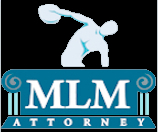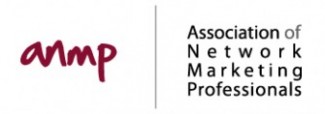By Len Clements © 2000
The numerous state and federal actions against this company is now old news. Every MLM “watchdog” has reported on it as well as several news sources. I believe that what, where and when these actions were, and are being taken is certainly important, but most importantly is why. Since The Tax People, aka TTP, aka AIM, aka Advantage International Marketing, aka Renaissance, has been under investigation for both alleged securities and pyramid violations by a number of state and federal agencies, I believe it makes for an excellent case study. Here, in chronological order, is a history of TTP and it’s founder and President Michael Cooper, including commentary and a final analysis.
1984: Michael Cooper discovers network marketing. He has initial success as a distributor only to see the company fail.
1989: Cooper is the Executive VP and founder of National Energy Specialists Association.
1991: Cooper is the National Director of Training for American Gold Eagle, a gold coin MLM, and one of the early pioneers of the binary compensation plan. AGE is eventually shut down for securities and pyramid violations (they claimed the Gold Eagle coins were a great “investment”). The pyramid label was due mainly to AGE reps buying product solely to acquire additional income positions in the compensation plan (the emphasis was on recruitment, not actual sales of the products – keep that in mind for later).
[Comment: The founders of AGE, David and Martha Crowe, will go on to found Gold Unlimited (without Cooper), which will also be shut down with 11 criminal counts against David and 10 against Martha. The Crowes fled prosecution and were recently featured on the TV show America’s Most Wanted].
1992: Cooper is the founder and President of Network Institute, also a binary, which deals primarily with productivity tools. The main product is the Management Action Planner (called MAP), an elaborate, leather bound time management and productivity system. The MAP sells for $295. There is a monthly $30 charge that includes supplies for the MAP, access to a phone training system called “One Minute Manager” and a tax deduction tracking system called Tax Tracker.
1993: Cooper sells Network Institute to his partner and takes the position of Executive Vice President of a start up long distance reseller called TeleFriend (which used a unilevel comp plan). Soon after, Network Institute is merged into TeleFriend as a distributor support system. Later this same year Cooper leaves TeleFriend on unfriendly terms.
1994: Cooper assumes the position as President of a small network marketing company called Truly Special (TRI). TRI sold specialty foods manufactured by it’s parent company Briarwood Farms.
November, 1994: Cooper and other senior personnel of TRI begin holding meetings where potential incomes of $100,000 are touted with an initial “investment” of $100. Also, shares of common stock in a company called Aunt Myra’s (AMI), a non-MLM marketer of ground beef seasoning, is offered for sale to participants in TRI. During this time Cooper also conducts live, national opportunity calls.
[Comment: On one such call, which I was listening in on, Cooper questions the reasoning behind distributor requests for him to focus more on the value of the products. He responds, “If I told you you could make $10,000 a month selling horse manure, would you care what the product was!?”]
December, 1994: Truly Special, Cooper, and other senior management are hit with an “Emergency Cease and Desist” order by the Securities Division of the Kansas Attorney General’s office for selling unregistered securities without a license. Aunt Myra’s is not a public company and it’s stock can not be legally sold. Furthermore, there are charges that TRI itself is an illegally sold security based on the $100 “investment,” and the heavy emphasis placed on recruiting others to invest, rather than product sales. The state’s charges also include various full-disclosure violations, such as; they failed to disclose to investors that in 1987 Aunt Myra’s was hit with a Cease & Desist order for having violated various provisions of the Kansas securities laws, and in 1989 AMI’s President and Chairman Gary Kershner was found guilty of two felony counts of selling unregistered securities.
Early 1995: TRI and Cooper are again under investigation by the KS AG’s office. This time the focus is on pyramid violations rather than securities violations. Once again, the catalyst to the investigation is the heavy emphasis on recruitment rather than product sales. Within weeks, Cooper closes down the company.
June, 1995: Cooper launches Renaissance Designer Gallery, a marketer of high ticket goods such as jewelry, art, collectables, and gourmet food. He is the majority shareholder, owning 64.04% of it’s common stock.
April, 1996: Cooper signs a posthumous Consent Judgment pursuant to the KS AG’s investigation of Truly Special. He agrees to be “permanently enjoined from engaging in those acts and practices alleged to be deceptive or unconscionable… (and) agree that engaging in such acts or similar acts, after the date of this Consent Judgment, shall constitute a violation of this order.”
[Comment: Cooper also agrees, and is now legally obligated, to disclose the existent and provisions of the Judgment to all of his (not Truly Special’s) future employees, agents and representatives for the next two years. Allegedly, he has not done so.]
November, 1997: Advantage International Marketing (AIM) is formed as a division of Renaissance to market tax related products and services. By the end of 1997 AIM has 489 distributors. AIM would eventually be known as The Tax People.
March, 1998: Renaissance purportedly has 20,933 distributors. AIM now has 1,648.
May, 1998: During a special interactive teleconference call several hundred AIM reps are introduced to “Commitment 2000.” Cooper himself describes how all AIM reps who will commit, in writing, to simply remaining active in the company until January, 2000 will receive 1,000 shares of stock in the company “regardless of whether they ever make a sale.” He further explains that an additional 1,000 shares of stock will be issued for every sale (of the $300 Tax Advantage System) that is made. In addition, he claims 1,000 shares of this stock is “worth today over $40,000.” He concludes by cautioning against promoting or advertising the deal by means other than private invitations. He refers to the information related on the call as “double secret stuff” and further comments “There are no misdemeanors in securities violations.”
June, 1998: Cooper files form SB-2 with the SEC in preparation to register common stock in Renaissance for the purpose of sale and distribution to distributors per the “Commitment 2000” announcement made in May.
August, 1998: Cooper applies to the SEC for withdrawal of their Registration Statement citing their inability to secure a broker/dealer required for registration purposes in several states.
September, 1998: Cooper is again sanctioned by the Securities Division of the Kansas AG’s office. Again it’s for offering unregistered securities (stock in his company, which was not yet registered) and for “omissions and misrepresentations” concerning the offer. For example, disclosure documents filed by the company revealed that the tangible book value of the stock was less than 0.005 cents per share – not $40 per share as was announced on the “Commitment 2000” call. The proposed offer price was 10 cents per share. Plus, distributors were never told during the call that not only was the stock not registered, there had not yet even been any action taken to register it. Cooper is forced to rescind the “Challenge 2000” offer to the 1,196 who signed up for it.
[Comment: It should be noted here that based on the definition of a security (SEC vs. W. J. Howey Co., 1946) the “investment” made in exchange for stock need only be “consideration.” That being; money, gold dust, chickens, labor – anything of value. Indeed, the SEC has even defined a “promise” as being “consideration.”]
October, 1998: The Kansas Attorney General’s office appoints a Special Agent to begin a formal investigation into the business practices of TTP.
May, 1999: Dan Gleason, President of My Tax Man, resigns from the Board of Directors of AIM/TTP citing a difference in product philosophy. My Tax Man is the company hired to fulfill the monthly tax services supplied by AIM/TTP, such as audit protection, 1040 preparation and review, telephone consultation, etc.
June, 1999: My Tax Man sends a “Termination of Service” to Cooper announcing they will no longer be providing the ongoing monthly services.
[Comments: This may well be one of those “you can’t quit ’cause you’re fired” deals. Gleason claims there was a falling out between him and Cooper resulting in a demise of contract negotiations, so he terminated the agreement. Cooper claims he terminated the services of My Tax Man which may explain why no further contract negotiations were offered by TTP. We’ll likely never know who really terminated who first. However, Gleason did initiate his company’s separation from TTP.]
July, 1999: TTP comes under investigation by the Securities Enforcement Division of the Attorney General’s office of Hawaii for possible pyramid and securities violations.
Summer, 1999: The Missouri AG’s office begins an investigation of TTP.
August, 1999: My Tax Man is issued a subpoena by the KS Attorney General’s office demanding the TTP member database. That same month Dan Gleason is deposed by the KS AG’s investigating attorney. An agent from the Criminal Division of the IRS is present for the deposition.
August, 1999: Sandy Botkin, founder of the Tax Reduction Institute and author of TTP’s “Tax Relief System” officially parts ways with TTP, demanding that TTP discontinue use of of his products, name and likeness.
[Comment: Botkin claims he verbally requested that TTP stop using his name and material as early as May. The Tax Relief System was the up front $300 product purchased by new TTP reps which activated their position in the compensation plan.]
January, 2000: Sandy Botkin sues TTP for continuing to use his name, and for using promotional material that suggested they were still using his tax education package as their Tax Relief System.
[Comment: Several months after I had first heard that Botkin had completely disassociated himself with TTP I received in the mail, unsolicited, an audio tape featuring an interview between Michael Cooper and Sandy Botkin praising the benefits of Botkin’s “Tax Relief System.” I discovered that, in fact, the tape was still a TTP supplied sales aid even though the product being sold by TTP was no longer Botkin’s.]
April, 2000: Cooper and TTP are the subject of a moderately negative article in The Kansas City Star newspaper
[Comments: Within the article Cooper responds to questions concerning his involvement with Truly Special by saying he took the president position weeks before the legal complaint was filed and was unaware of the company’s legal problems. However, within that complaint it is stated, “Defendant Cooper is an individual who was President of Truly Special, Inc. during the time the acts alleged in paragraph eight occurred.” It further states, in paragraph eight, that “…the following acts and practices by Defendants Cooper and (codefendant) were deceptive and/or unconscionable and violate the Kansas Consumer Protection Act…”. Cooper’s signature appears at the end of the Judgment.]
April, 2000: The Criminal Division of the IRS demands the latest TTP member database from My Tax Man, which they supply.
May, 2000: W. Bradford Murray sues TTP in Federal court for copyright infringement claiming much of the tax advise in the new Tax Relief System was taken verbatim from his work. The company claims it acquired the rights legally through an intermediary.
May, 2000: The KS AG’s office reports 27 formal complaints have been filed against Renaissance, AIM and TTP dating back to 1995. Fourteen are still open (unresolved).
[Comments: The TTP spin from the field was that this was par for the MLM course. Not true. This is, relatively speaking, a substantially high number of complaints for a five year old company.]
June, 2000: In an internal IRS newsletter within an article titled “Tax Alchemy” they warn, “In a multilevel marketing scheme, unsuspecting investors may be told they can convert their personal expenses into home business deductions by selling the tax shelter program to their friends.” This is the first public hint that there is an IRS investigation of TTP.
July, 2000: TTP now claims to have over 50,000 representatives.
August, 2000: The North Carolina Attorney General advises Cooper that TTP is an illegal pyramid and they should stop soliciting NC residents.
September, 2000: Cooper and TTP are the subject of a harsher, although not entirely negative article in the New York Times. The article is primarily critical of the tax strategies taught by TTP.
September, 2000: TTP is the subject of discussion during a segment of The O’Rielly Factor, a Fox News television program. An ex-IRS commissioner is also part of the on-air discussion. The lone TTP representative (not Cooper) spends most of the ten minute segment deflecting accusations of pyramiding and defending their tax strategies.
[Comment: The segment ended on it’s only positive note with the host suggesting TTP’s $40 per month fee for audit protection “sounds like a good deal.” However, Mr. O’Rielly apparently didn’t have a calculator handy. More on this in the final commentary.]
October, 2000: The North Dakota securities commissioner issues a cease and desist order to halt “recent” offers of stock in Renaissance/TTP to at least one NC resident as an incentive to keep them participating.
[Comment: Unbelievable.]
October, 2000: The TTP home office is raided by the Criminal Division of the IRS as well as the US Postal Inspection Service.
October, 2000: The Kansas AG’s office receives inquiries about it’s investigation of TTP by 8 other states, including California and Florida, as well as from the SEC and FTC.
October, 2000: TTP agrees to a Temporary Restraining Order (TRO) requiring them to shut down their web site, halt all new sales and enrollment of new reps, and discontinue the paying of commissions and bonuses. The company’s assets are frozen, although the order does allow for the ongoing fulfillment of various services, such as audit protection and tax advice, and the payment of basic operating expenses.
[Comment: This is a state action and it separate from the federal investigations.]
December 11th, 2000: A hearing will take place to decide the resolution to the TRO. Either it will be lifted, modified, or the company will be permanently enjoined from doing further business.
In the KS AG’s Petition to the court (to be decided upon December 11th), there are several key statements. A listing and analysis of each follows:
1. “Defendants (TTP/Cooper) are responsible for the acts and omissions of their employees and agents under the legal doctrine of respondeat superior and agency.”
[Comment: Much of the spin coming from the field is that TTP was clean, but the actions of a few renegade distributors was the cause of the legal actions. The same case was made by Equinox. It didn’t work.]
2. “questionable use of home business deductions”
[Comments: Cooper and field leadership claim all the tax strategies taught by TTP are perfectly legal, thus there’s nothing to worry about. While the strategies themselves may be sound – although in some cases even that idea is being debated – it’s the manner in which they were implemented that is the challenge. Yes, it is legal to deduct a business trip even if you have some fun while you’re there – but the trip has to be primarily for business purposes. You can’t take a vacation to Hawaii, stick a few business cards on windshields and call it a business trip. Yes, it is legal to hire your children and deduct what you pay them, but they actually have to work in your business, and you have to set up a real payroll system – preparing W-4 forms, filing quarterly 941 forms, issuing W-2, etc. Yes, it is legal to deduct a portion of your home used for business – but it has to be (among numerous other limitations) an area used 100% as your primary place of business – so your kitchen table doesn’t count.
So, again, the legal challenges to the TTP strategies are not so much to do with the strategies themselves, but the questionable manner which they are being promoted and used. Remember, the IRS isn’t assuming anything. They don’t have to guess. They’ve had over a year to analyze the TTP teachings and to review the tax returns of TTP members and reps before they took action. The KS AG has had over two years. Obviously, they didn’t like what they saw.]
3. “Defendants are in the business of selling tax deductions.”
[Comments: The primary reason for starting a business must be to make a profit, not create tax deductions. If you don’t show a profit motive the business may be declared a “hobby” by the IRS thus related expenses would not be deductible. Based on everything I’ve seen and heard from TTP and it’s reps, the emphasis clearly seems to be on the tax savings you’d receive by becoming a TTP rep. In fact, a common practice among some TTP reps was to tell prospective buyers to lower their withholding for taxes even before they joined to cover the up front cost for the systems.]
4. “In essence, Defendants are selling a home based business to participants that consists of nothing more that selling the same business to other participants so that they too can take the aggressive business tax deductions promoted by Defendant’s scheme.”
[Comments: This point reminds me of those manuals on how to get rich in mail order by selling manuals on how to get rich in mail order. Essentially, the Kansas AG is saying there is really no business here, other than the business of selling the business.]
5. “The following false claims are contained in one of three of Defendant’s video tape promotions:
(a) ‘This program is approved for 8 hours of continuing professional education…’
(b) ‘Renaissance is a publicly traded company.'”
[Comment: Although Cooper did take steps to have each of these statements eventually come true, neither was at the the time the videos were produced, nor are they now.]
6. “Defendants have engaged in unconscionable acts or practices in connection with consumer transactions while knowing or having reason to know that when the consumer transactions were entered into the price of Defendant’s services grossly exceeded the price at which similar services were readily available…”
[Comments: You can’t mark up a product just to support commissions in an MLM comp plan. Indeed, there are other, non-MLM, tax services that offer almost identical services as TTP for less than half the price. The concern here is that most TTP reps were not purchasing the monthly service just for the value of the service, but to also meet the qualifications in the comp plan. In other words, they likely would not have paid $100 per month for those services if there were no income opportunity.
Is the $40 per month for audit protection a “good deal?” Well, considering the average American is 35 and the average age of death is around 75, and according to the IRS the average number of times someone is audited is once every 120 years (0.8% per year) that would mean the average TTP member would pay $19,200 in their lifetime to protect themselves from the 1 in 3 chance of being audited at least once. Of course, you could not pay the $19,200 to TTP and instead pay the best tax attorney in the country to represent you IF you are audited and still save several thousand dollars.]
7. “Defendants adopted, implemented and enforced a distribution system whereby Defendants paid commissions, bonuses and other benefits to participants who purchased ‘Founders Paks’ that were not based on the sale of bona fide products to verified end-user consumers.”
[Comments: The KS AG put this point more succinctly when she stated, “I believe it is illogical for people to buy four or more tax relief systems unless it is to expand the pyramid.” This is the crux of the pyramid accusation. Basically, MLM companies can only pay commissions on products that would realistically be purchased based on the value of the product alone. In other words, if it’s sales volume that would only be generated by enrolling a new rep, then it would be income based primarily on recruitment which is the epitome of what defines an illegal pyramid. I have asked a total of nine TTP reps what the value was to purchasing a Founder’s Pak (four Tax Relief Systems for $1,200 total) and nine out of nine responded by telling me how it would activate more income earning positions, thus I could earn more money. In one case I explained why this was a bad answer and the distributor responded by claiming I would also need extra systems for demos. Well, that would then make them sales aids and still non-commissionable (because only reps would purchase sales aids). He then decided to take a life-line and call a friend, a “top distributor” in TTP. His response was that a new rep needed extra kits so as to have “revolving inventory.” However, when a system is sold and the paperwork is sent to the company, TTP automatically drop ships a Tax Relief System. “Yes,” was the response, “so your customer now has two kits and they give one back to you to replace in your inventory.” Okay, so why tie up $900 of my family’s budget (for the extra 3 kits besides my own) in inventory I may or may not sell, when the company will drop ship on an as-needed basis? Besides that, TTP’s own marketing material promoted buying four systems to get “double the pay out.” Clearly, the first answer was the right answer, no matter how wrong it was.
What is curiously missing from any legal argument against TTP is the fact that each of the four positions that are activated with a Founder’s Pak purchase would eventually require a $100 per month purchase to keep each of them fully qualified. That would be $400 per month (which, as it was described to me, would happen automatically once your income was sufficient to cover this cost). There seems to be no doubt that this would be a token purchase just to meet a quota and not for the value of what’s received.]
8. The Petition asks the court, among various other proposed penalties, “that Defendants be permanently enjoined from engaging in any form of business involving multilevel marketing or referral sales.”
Final Analysis and Commentary
I’ve spoken with many TTP reps over the years. I’ve spoken at one of their events here in Las Vegas and met with many of them personally. I found them to be sincere, honest folks who genuinely believed in what they were doing. Today, when I listen in on their conference calls and read their on-line messages my heart aches. It looks as if most of the leadership is staying loyal based on company propaganda that suggests the TRO will be lifted, TTP will be vindicated, and it will soon be business as usual. Also, that the federal raid was initiated by competitor lies, and all the actions would be dropped once the authorities discover how TTP really operates.
Reps are also being told that many other successful companies, such as Herbalife, Nu Skin and Amway, have gone through equally challenging times and survived. Herbalife did $430 million in the U.S. in 1983. They did $30 million in ’84. TTP did $24 million last year, before the legal action. I know Herbalife, and TTP is no Herbalife. What also wasn’t woven into the spin is the fact that each of those companies were financially devastated in the U.S. by the legal actions against them and very likely survived due to revenue from foreign markets – a deep well TTP doesn’t have access to.
Reps are also being encouraged to keep paying their $40 per month for audit protection because now, with the IRS scrutinizing their returns, they need this service more than ever! However, Cooper has openly stated that if the IRS were to audit too many client returns the company may not have the resources to fulfill its audit protection promise. What’s more, if someone has paid the $40 fee for the last few years then stops, and a past TTP prepared tax return is then audited, TTP will not represent them (typically, audits begin at least 18 months after a return is filed). You have to keep paying the $40 now to protect past returns.
Unlike what’s coming out of the TTP spin cycle, these actions are not due to “misunderstandings” perpetrated by TTP “enemies.” The IRS criminal investigation is clearly due to what they saw, not hearsay testimony by vindictive ex-experts. The raid is actually the end-stage of the investigation which, on a state level, have been on-going for over two years, and at least one year on a federal level. Understand, a search warrant can’t be obtained without strong “probable cause.” A federal raid can not be authorized without the authorities believing they already have a very strong case. A TRO could not be initiated without a judge reviewing the evidence and agreeing there is a strong case. And remember, the TRO is a state action. Even if it is lifted, there is still not one, but two separate federal investigations (IRS and U.S. Postal Service) to contend with, not to mention the various other states that have taken, or will take, action against them. There appears to be a conga-line forming.
There are three possible outcomes to the eventual ruling on the AG’s petition:
1. The company is permanently enjoined from doing business. That is, they’re gone. It’s over. This is what the AG is asking the court to do. If such action is taken it would not be unusual to also see Michael Cooper banned for life from further participation, in any capacity, in MLM. This was the penalty imposed on two of the founders of FutureNet, as well as Equinox founder Bill Gouldd. The most horrific aspect of this possible outcome is that, if TTP is formally and finally declared an illegal pyramid, all of the previous deductions taken by TTP reps may no longer be deductible.
2. TTP will be required to completely overhaul the program, which would likely include a significant price decrease, the complete elimination of Founder’s Paks (or of qualifying multiple income centers), the elimination of TTP itself as “the business” which deductions can be taken, and a provision that no purchase volume is commissionable unless there is a certain amount of verified retail sales to non-distributors (it was 50% in the Jewelway case). There could also be a court mandated refund to any current or past reps who want their money back. In other words, TTP is allowed back in business and then quickly dies a natural death by attrition.
3. The TRO is modified or remains the same and TTP fights it out in court – and to the victor go the spoils. With no end in sight to the moratorium on paying commission, reps would leave in droves. It would be business suicide.
One would think that the chances of outcome #3 happening is slim to none. But then, Michael Cooper, who is a member of Mensa (the high IQ society), seems to have an SQ (Stubbornness Quotient) even higher. I was specifically told by a representative of the KS AG’s office that their investigation was initiated due to the number of complaints being filed, almost all of which due to dishonored refund requests (which allegedly came after the 30 day window to receive refunds). The AG’s office claims refund requests were “shuffled around” to force them beyond the 30 day window. TTP denies this. Regardless, at last count there were 27 complaints. If you could have happily and swiftly refunded $300 to 27 people and avoided a state Attorney General investigation (and potential destruction of your company), wouldn’t you have just paid the refunds?
This could be the most costly $8,100 an MLM company ever saved.
Epilogue
On December 12th there were three separate live conference calls to announce the results of a settlement that had allegedly been reached with the Attorney General of Kansas. Each call was conducting by a leading distributor who informed the well over 1,000 listeners that a settlement was in fact eminent, but the details could not be announced until the “documents are filed,” which would be at any time. By the third and final call of the day the announcement was made that the details of the settlement still could not be discussed while “they cross the ‘I’s and dot the ‘t’s” (exact quote) and that the details would be announce on Sunday, the 17th. As it turns out, there was no settlement.
On December 17th Michael Cooper addressed the settlement issue on a live, national conference call. He claims the Kansas AG had proposed a settlement offer requiring TTP pay a one million dollar fine, admit guilt, and make one simple change to their plan. Allegedly, that change involved nothing more than charging a distributor the “wholesale” cost on all purchases of the Tax Advantage System after the first purchase. He claimed “everything else was fine.” The settlement also required that Cooper must step down as CEO. However, he further stated that on Monday (the day the settlement was to be announced), after agreeing on the settlement terms, the AG added several more “hoops” to the settlement. Cooper then claims to have had a discussion with other TTP leadership and, as a group, decided to forgo the settlement and await their day in court. That has been rescheduled for February 12th. In the mean time TTP can’t pay commission checks and reps may not sell or recruit.
Of course, all this begs the question, if the only thing the AG found wrong was charging full price for extra TAS kits, why the requirement to admit guilt to being a pyramid scheme, pay a million dollar fine, and banish Cooper?
Will there be a settlement before 2/12? Unlikely. That bridge seems to be burned to a cinder. On the national call, Cooper angrily made several incendiary comments regarding the Attorney General such as, “we got jerked around,” and that his “mistake was trusting and believing when I’m told we have a deal we have a deal.” He also stated that “God’s on our side” and that they were “on the brink of one of the greatest tragedies in corporate American history.”
It get’s worse.
On December 8th federal prosecutors moved to have TTP forfeit $8.9 million that was seized from 13 separate accounts associated with CEO Michael Cooper and TTP/Renaissance. The funds were seized as part of the raid conducting by the IRS and US Postal Inspectors Office. The U.S. attorney for Kansas filed a civil law suit claiming TTP has been involved in mail fraud and money laundering. Remember, this is a totally separate action from the settlement negotiations with the state Attorney General’s office.
The complaint filed by the U.S. Attorney divulged even more scathing evidence of fraud and deception by TTP and Cooper. Details of conversations between TTP corporate personnel, including Cooper, and undercover agents are described, as well as allegations of fraud pertaining to Cooper’s personal history. In one case, Cooper is videotaped while making the claim “I overpaid my taxes by $4,000 per year for the past 15 years.” However, based on IRS records there were seven years since 1985 in which Cooper’s total tax liability was less than $3,000, including two years (1991 and 1995) in which his tax liability was ZERO. In an audio tape produced by Cooper he made the statement, in regard to his involvement with Truly Special (his previous company before Renaissance) that he was “personally earning $20,000 per month and resigned as President and walked out on over $40,000 per month personal income.” According to Cooper’s 1995 income tax return, he reported no wages and a $52,545 loss from a sole proprietorship business venture. In yet another example, Cooper says on his recording, “I haven’t borrowed any money since 1982, don’t have a mortgage or payments on our home and we pay cash for whatever we want or need.” In fact, Cooper has filed three separate Chapter 13 bankruptcies since 1982, the last of which, in 1993, involved 39 separate creditors and debt totaling $167,000.
The entire 26 page complaint, along with several other legal filings, can be found at www.cjonline.com.
Could there be a settlement with the Feds? Again, not likely. Cooper addressed the federal action during the live call by assuring listeners he would fight to prevent the feds from “stealing your commissions.” He referred to the government’s pursuit of TTP as an act of “tyranny.”
Final Commentary
After listening to Cooper’s “Independence Day” style speech, it seems as if he genuinely believes neither he, nor TTP, has done anything wrong. What he fails to acknowledge is the fact that reps, and TTP literature, did routinely promote $1,200 Founder’s Packs as a way to qualify for more income, Cooper did make numerous false comments, the products were overpriced, reps did focus way too much on the tax savings rather than the profit motive (of starting a business) and they absolutely did apply the tax strategies in an overly aggressive manner. In fact, according to court documents, the IRS has audited many tax returns filed by TTP members over the past year that reported little gross sales and disproportionally high costs for automobile expenses, family wages, depreciation, travel and business use of the home. The federal lawsuit further states “During the civil review process, the IRS determined that many of these taxpayers were not legally entitled to claim these expenses, despite the fact that Renaissance promoters have claimed that these types of deductions are legal and appropriate… The majority of these audits have resulted in the disallowance of Renaissance-related business expenses and subsequent assessment of additional taxes and penalties.”
TTP is going to pay now, or they’re going to pay later. If Cooper really had his distributor’s best interests at heart, he’d take one for the team, pay the bill, admit guilt, step down, and let them get back to work.










